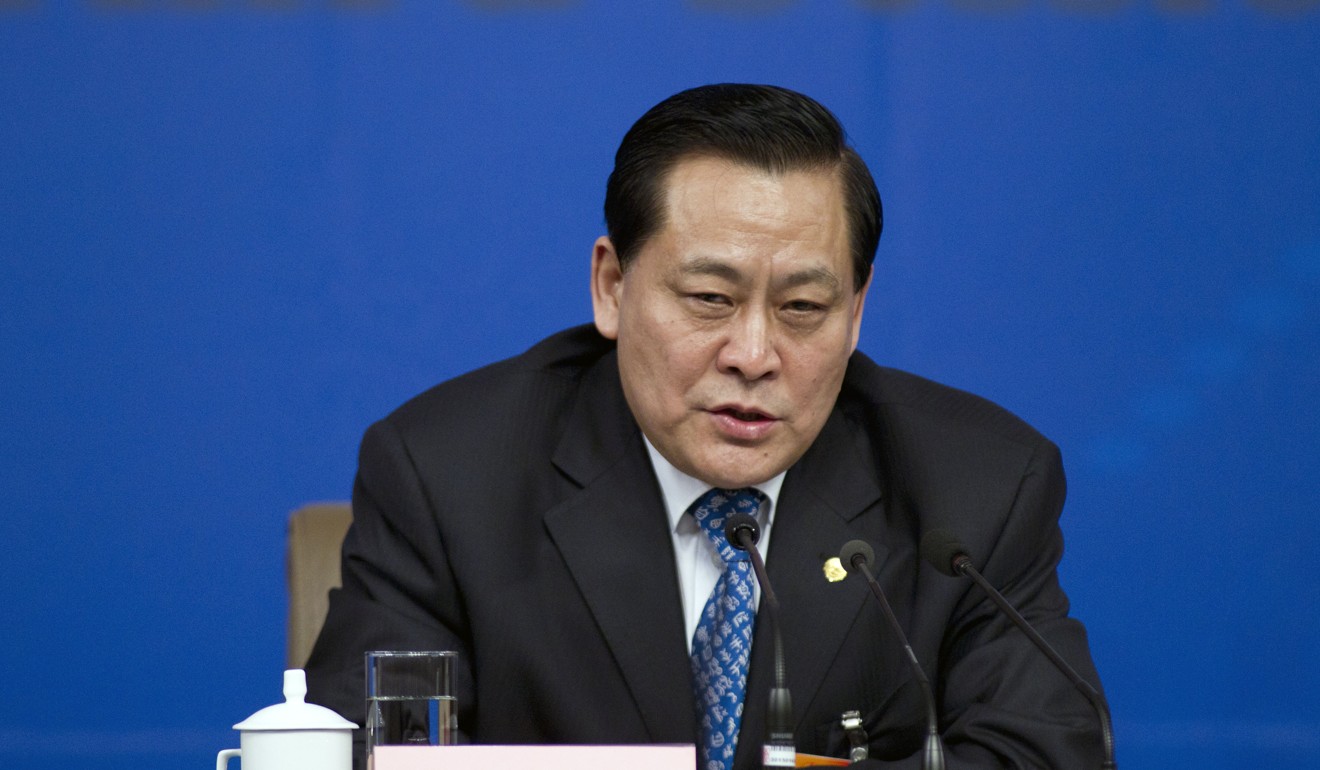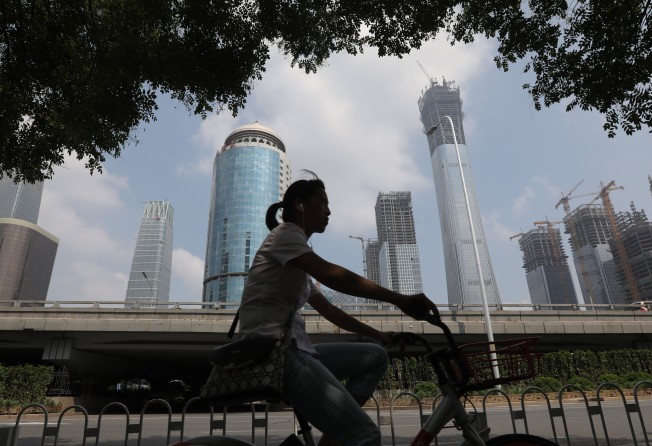
‘One leak and we’ll all drown’: top Chinese lawmaker raises alarm over river of local government debt
NPC Standing Committee member says liabilities have been hidden and vastly underestimated

China’s debt mountain remains an ominous threat to the world’s second-biggest economy, and will take years to remedy, according to a prominent Chinese lawmaker.
Yin Zhongqing, who was re-elected on Tuesday as a deputy director of the National People’s Congress’s financial and economic affairs committee, said Beijing’s official figures for local government debt – 16.5 trillion yuan (US$2.6 trillion) overall as of the end of last year – could be underestimates, with many government liabilities disguised as corporate debt.
Yin said internal government assessments put the size of “hidden and disguised” local government debt at “at least 20 trillion”, making China’s official figure less than half of the real total.
Yin also said the percentage of non-performing loans in China’s banking system at the end of last year was much higher than the official 1.74 per cent because banks often rolled over problematic loans or hid risky debts.
Yin said the cause of the country’s debt problem was excessive printing of money in the past decade, with the amount in circulation quadrupling between 2007 to 2017 to 168 trillion yuan, or over 200 per cent of China’s nominal GDP.
“It is like a river hanging over our heads – if there’s a leak, it will drown us,” he said.

Yin, whose seat on the NPC Standing Committee authorises him to question ministers on economic policy, said the debt problem was too big and widespread to be solved quickly.
“As the Chinese saying goes, sickness descends like a landslide, but goes away slowly like spinning silk,” he said.
Yin’s outlook is less optimistic than the official view – outgoing central bank chief Zhou Xiaochuan insisted this week that China had brought its debt problem under control because the money supply rate was lower.
But Yin said the local government debt situation “is even more dangerous than before because they [liabilities] have been covered up” in forms such as equity investment, government service procurement, public-private partnership projects and state-owned enterprise debt.
“This is actually debt incurred by local governments, and they will eventually default.”
The assessment gives a glimpse of the concerns at the top about financial risk, a priority Chinese President Xi Jinping has set for the coming years.
“There are many risks, but the focus is on financial risk. Financial risk is the biggest risk and can lead to the worst possible result,” Yin said. “When we are talking about systemic risks, we are talking about financial risks; when we are talking about preventing risks, we mean a financial crisis must be avoided.”
The Chinese leadership led by Xi has rallied a powerful state machine, including its police force, to fix financial loopholes after a stock market rout in the summer of 2015 and strong capital outflows revealed vulnerabilities in the country’s financial system. Tycoons were detained and arrested, heavy borrowers were ordered to repay debts, and thousands of fundraising schemes were busted.
At the same time, a new financial development and stability commission has been created, which Liu He, Xi’s top economic aide, is expected to take over soon. In addition, the China Insurance Regulatory Commission and the China Banking Regulatory Commission will be merged into one regulator as part of a sweeping government restructure.
Zhou also said the country was drafting rules to clip the wings of financial holding groups spanning banking, securities and insurance.
Yin said financial conglomerates with various financial business licenses, which have both online and offline operations, would be targeted and Beijing was finding ways to assess their underlying assets, from property to forex market positions.
Ideally, the three regulators should become one to avoid vested interests, he added.
Meanwhile, Yin warned that the pace of risk control must be well managed and policies should be targeted.
“Major regulators should prevent jumping on tough measures at the same time because the policy overlap could generate new risks,” he said.